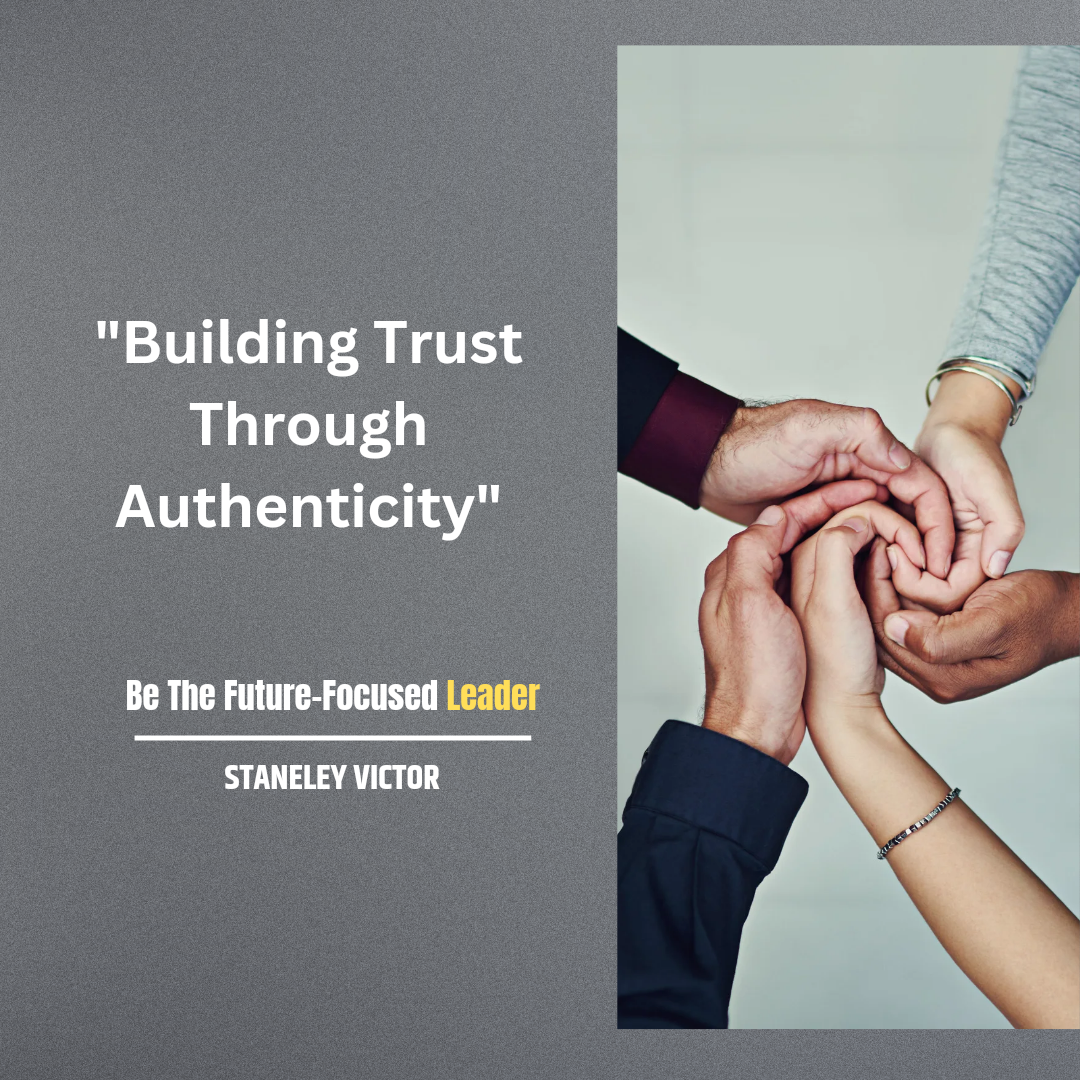“Navigate Change, Inspire Teams, and Build a Sustainable Legacy”

Intro:
In the ever-evolving landscape of relationships – be they personal or professional – TRUST remains an indispensable component. It’s the invisible thread that holds connections together, shaping how we communicate, collaborate, and grow with each other. One of the most potent catalysts for fostering this trust is AUTHENTICITY. When we embrace our genuine selves and engage with others from a place of sincerity, we lay a sturdy foundation of trust that can weather any storm.
Authenticity: The Cornerstone of Trust
The word ‘authenticity’ is often tossed around, but what does it truly entail? Authenticity is about being true to oneself, about aligning your actions with your inner values, beliefs, and principles. It’s about being honest, transparent, and consistent in our interactions, thereby allowing others to see and understand us as we truly are.
Practicing Authenticity: Steps Towards Trust
When people sense authenticity, they are more likely to trust, because authenticity eliminates guesswork. There are no smoke and mirrors, no hidden agendas, just the real, unfiltered you. It allows others to understand your motives and predict your reactions, making them feel secure and valued.
Building trust through authenticity is not an overnight process. It requires conscious effort and commitment, but the results are profoundly rewarding. Here are a few strategies:
- Self-Awareness: The journey to authenticity begins with understanding who you are – your values, your passions, your strengths, and your weaknesses. Self-reflection can be a powerful tool in this exploration.
- Honest Communication: Authenticity thrives in a space of honesty. Strive to be transparent in your interactions, expressing your thoughts, feelings, and opinions genuinely. Remember, it’s not about being brutally honest, but about being tactfully truthful.
- Consistency: Trust is fostered when people can predict your actions and reactions. Being consistent in your words and actions is critical. It signals to others that you are reliable and steadfast.
- Empathy: Authenticity involves recognizing and respecting the experiences and perspectives of others. Listen actively, show understanding, and value their input. This human connection cultivates a strong bond of trust.
- Embrace Vulnerability: Showing our vulnerabilities can be daunting, but it’s an integral part of being authentic. It shows others that you are human, that you too have weaknesses and make mistakes, creating a mutual understanding that bolsters trust.
The Authenticity-Trust Cycle
The relationship between authenticity and trust is cyclical. When we demonstrate authenticity, we build trust. In turn, this trust allows us to feel safe to be more authentic, thus reinforcing and deepening the trust.
In conclusion, authenticity is not just about being true to ourselves; it’s about creating environments where others feel safe to be true to themselves too. As we journey towards authenticity, we pave the way for more profound, more trusting relationships that are the bedrock of successful personal and professional lives. Embrace authenticity, and witness how it transforms your world by building unshakeable bonds of trust.
So,
Are you an HR or Learning & Development Head, CEO, Team Leader?
Are you looking for Leadership Development, Team Bonding, DISC Assessment & Workshop or Personal Growth Trainings?
Connect with us Now!!!
Staneley Consulting & Training
www.staneley.com
WhatsApp: 8879381993 / 8806411993/9766465193
Email: staneleyconsulting@gmail.com
